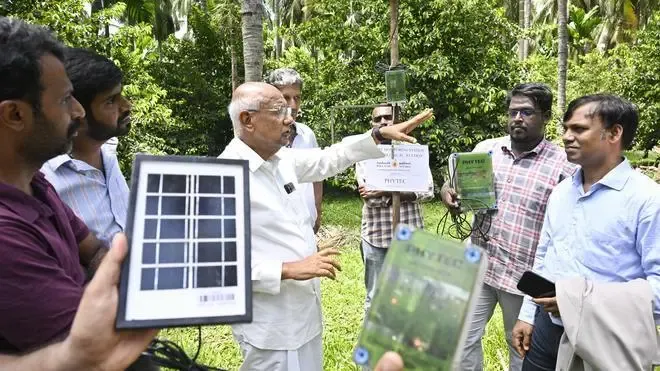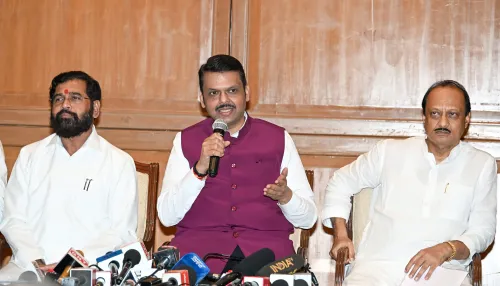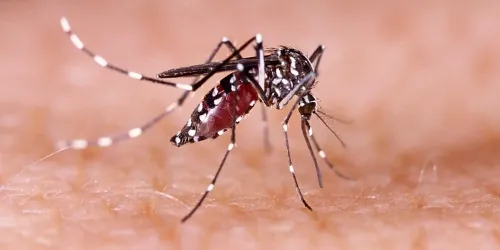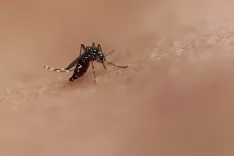How are Coconut Farmers in Pollachi Adapting to Root Wilt Disease?

Synopsis
Key Takeaways
- Farmers are using technology to combat root wilt disease.
- Real-time weather data will guide agricultural decisions.
- Collaboration with TNAU enhances research and support.
- Climate sensors operate independently of mobile networks.
- Focus on preserving the coconut value chain is critical.
Chennai, July 13 (NationPress) In a groundbreaking effort in Tamil Nadu, coconut farmers from the Pollachi region in Coimbatore district have initiated the use of a technology-driven field monitoring system to monitor climatic conditions and evaluate the future sustainability of coconut farming.
This initiative arises as the area faces the severe repercussions of root wilt disease, which has impacted lakhs of coconut trees. While this system does not directly combat the disease, it is set to deliver essential real-time weather data, including temperature, humidity, rainfall, and solar radiation, which will assist in making informed decisions regarding alternative cropping strategies and land utilization.
Farmers from the Anamalai, Pollachi North, and Pollachi South blocks have collaborated to set up the monitoring units, currently being piloted in Kottur village. The initiative receives backing from the Tamil Nadu Agricultural University (TNAU), Coimbatore.
According to M. Raveendran, Director of Research at TNAU, the disease has already impacted around 10 lakh trees across the three blocks, out of an estimated 75 lakh coconut palms.
Among these, 3.5 lakh trees are critically affected, and nearly 1 lakh have been uprooted.
“Root wilt disease has no known cure. The only method to manage it is by removing the infected trees before it spreads further,” stated Raveendran.
The disease is caused by a phytoplasma, a wall-less microorganism residing in the phloem tissue of plants and transmitted by vectors like leafhoppers and whiteflies. Although it has existed for decades, its transmission has escalated in recent years due to changing climatic conditions that support vector survival.
The monitoring system comprises solar-powered, sub-gigahertz sensors positioned at one-kilometre intervals. These sensors relay data to a central gateway, which uploads it to cloud servers for analysis.
Importantly, the system functions independently of mobile networks, guaranteeing reliable data transmission even in secluded locations. TNAU has committed to analyzing the incoming data to investigate how microclimatic changes affect crop health and suitability.
Raveendran expressed admiration for the farmers' proactive efforts and assured complete support for the initiative.
“The immediate focus is to preserve existing coconut trees and uphold the coconut-based value chain, encompassing coir and other allied industries,” he emphasized.
The total area under coconut cultivation across the three blocks spans over 50,000 hectares, characterized by unique climatic patterns.
To support these efforts, TNAU is assessing 'Cococon', an injectable formulation currently undergoing field trials, alongside testing novel chemical treatments aimed at enhancing productivity.
The university is also providing wilt-resistant coconut varieties and evaluating the viability of alternative crops such as fruits and spices for long-term diversification. To date, 16 farmers in the Anamalai block have installed the devices.
Raveendran noted that broader adoption will hinge on government support and intervention.









